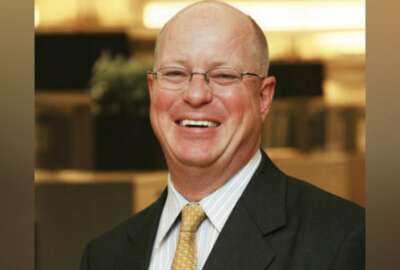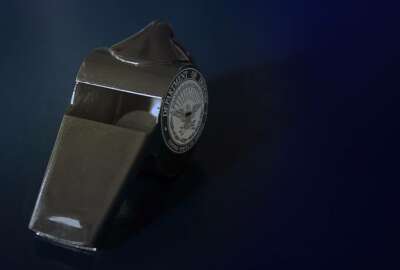
Government whistleblowers: Courageous saints or revenge-hungry rats?
Many current and former feds remember whistleblowers in their agency. Often times the people who knew them best are the best judges of their actions, impact and...
Almost every president in modern times has been plagued by inside-the-government whistleblowers. They’re patriots to some, dirty rats to others.
President Richard Nixon was forced to resign because of the fallout over Watergate. Much of the information and confirmation of facts and players in the break-in and cover up was based in large part on information provided to The Washington Post reporters Bob Woodward and Carl Bernstein. Much of it came from a source, nicknamed DeepThroat, who was later revealed to be the No. 2 person at the FBI.
Before Watergate, there was the Pentagon Papers, given by a whistleblower working for the government to the New York Times. Later when the Times was blocked from publishing them, that whistleblower gave the think tank report to The Post. The papers were the result of a study of the Vietnam War ordered by the Pentagon, and showed, in effect, we couldn’t win — but continued to fight. Both presidents Lyndon Johnson and, later, Nixon withheld the information from the public until an insider spilled the beans.
What could have been their motives?
Was Deep Throat acting out of patriotism and honor, or was he a ticked off bureaucrat angry because he’d been passed over for promotion? Or maybe it was some of both? Both sides can make a case.
Many current and former feds remember whistleblowers in their agency. Often times the people who knew them best are the best judges of their actions, impact and motives. Some think the news media often sees whistleblowers through a political filter based on who he or she is attacking rather than the waste, fraud or abuse that is charged. One of the most famous whistleblowers of modern times, A. Ernest Fitzgerald died earlier this year at age 92. He was an Air Force civilian engineer who blew the whistle on billions of dollars of cost overruns. He was fired, then restored to duty, serving from 1965 to 2006.
So what’s a modern-day government whistleblower like? We asked Wayne Abba, a former colleague of one of the best-known whistleblowers ever, what he thought made Fitzgerald tick. This is what he wrote:
Appreciation for a whistleblower
Ernest “Ernie” Fitzgerald died at the age of 92 on Jan. 31, 2019. I’ll presume to use his first name, as I came to know Ernie in three different milieus: First when I was a young procurement intern at the US Army Missile Command in Huntsville, Alabama, then as the senior analyst responsible for contractor performance measurement in the Office of the Secretary of Defense, and finally as president of the non-profit College of Performance Management.
Related Stories

Inspector general community launches new online reporting tool for whistleblowers
He eventually was fired, but it took about two years before Nixon ordered his dismissal in the president’s inimical fashion: “Fire the SOB.” Ernie then sued the president, leading to a US Supreme Court case on presidential immunity that made Ernie “America’s best-known whistleblower,” according to The Washington Post in 1987. In the end, he was reinstated with back pay.
Ernie’s confidence about the C-5A contract’s performance relied on the technique now known as “earned value management” that he pioneered. His consulting firm, Performance Technology Corporation, built on well-understood industrial management principles that were formalized in the 1960s as the Air Force Cost/Schedule Performance Control Specification (C/SPEC), which evolved to the Department of Defense Cost/Schedule Control Systems Criteria (C/SCSC) and to today’s Earned Value Management System (EVMS). As Ernie’s contemporary, the late Jim Morin, explained in the College of Performance Management’s Measurable News publication in 2016:
“Earned Value, as it was originally titled, was the creation of A. Ernest ‘Ernie’ Fitzgerald, a name well known inside the Beltway, but not so well known outside. Ernie was an industrial engineering graduate of the University of Alabama with an extensive knowledge of work measurement. He often stated that earned value is nothing more than classic work measurement. True, but it’s like saying water is nothing more than hydrogen and oxygen. The work measurement components are traditional, but the context is unique, and it was Ernie who defined that context.”
When I first met Ernie in Huntsville, he was an outspoken advocate for efficient management of government projects. Years later I encountered him as a peer when I was an Office of the Secretary of Defense staffer and Ernie held a senior civilian management position in the Air Force following his reinstatement. We rode together in a shuttle from the Pentagon to Capitol Hill, where he testified on Defense cost management. He didn’t recognize me from our earlier encounter in Huntsville, and I didn’t volunteer that my role that day was to monitor his testimony. By then, Ernie was widely seen as a maverick, a pariah. He saw himself as a truth-teller.
In my leadership roles in the College of Performance Management, I encouraged Jim Morin to recount Ernie’s inspirational ethical and professional history. I was privileged to know him and his successors – leaders such as Air Force officer Hans “Whitey” Driessnack, who embraced the management principles Ernie pioneered and made them Air Force and ultimately Defense Department policy. I believe Ernie’s contributions to government management vastly outweighed the perceived “whistleblower disloyalty” to the Air Force that tarnished his reputation.
Wayne Abba retired from the Office of the Secretary of Defense in 1999 and is immediate past president of the College of Performance Management, a non-profit professional organization dedicated to the disciplines of program performance management and measurement. www.mycpm.org
Nearly Useless Factoid
By Amelia Brust
Since 2008, Switzerland’s Federal Food Safety and Veterinary Office has required that guinea pigs, mice, gerbils, rats, degus, chinchillas, Japanese quails, macaws, cockatoos, parakeets, parrots, canaries, estrildid finches and lovebirds be kept in groups of at least two because they are very social animals. Within three years various rent-a-pet services began launching around the country to meet new demand for pet pals.
Source: Swissinfo.ch, Wide Open Pets
Copyright © 2025 Federal News Network. All rights reserved. This website is not intended for users located within the European Economic Area.
Mike Causey is senior correspondent for Federal News Network and writes his daily Federal Report column on federal employees’ pay, benefits and retirement.
Follow @mcauseyWFED




